Quito architecture, eateries and a tiny-home Airbnb in our guide to the city
Discover Quito, from llama steaks to a 12 sq m home and geometric architectural feats in our guide to the city from Wallpaper* contributor Rainbow Nelson
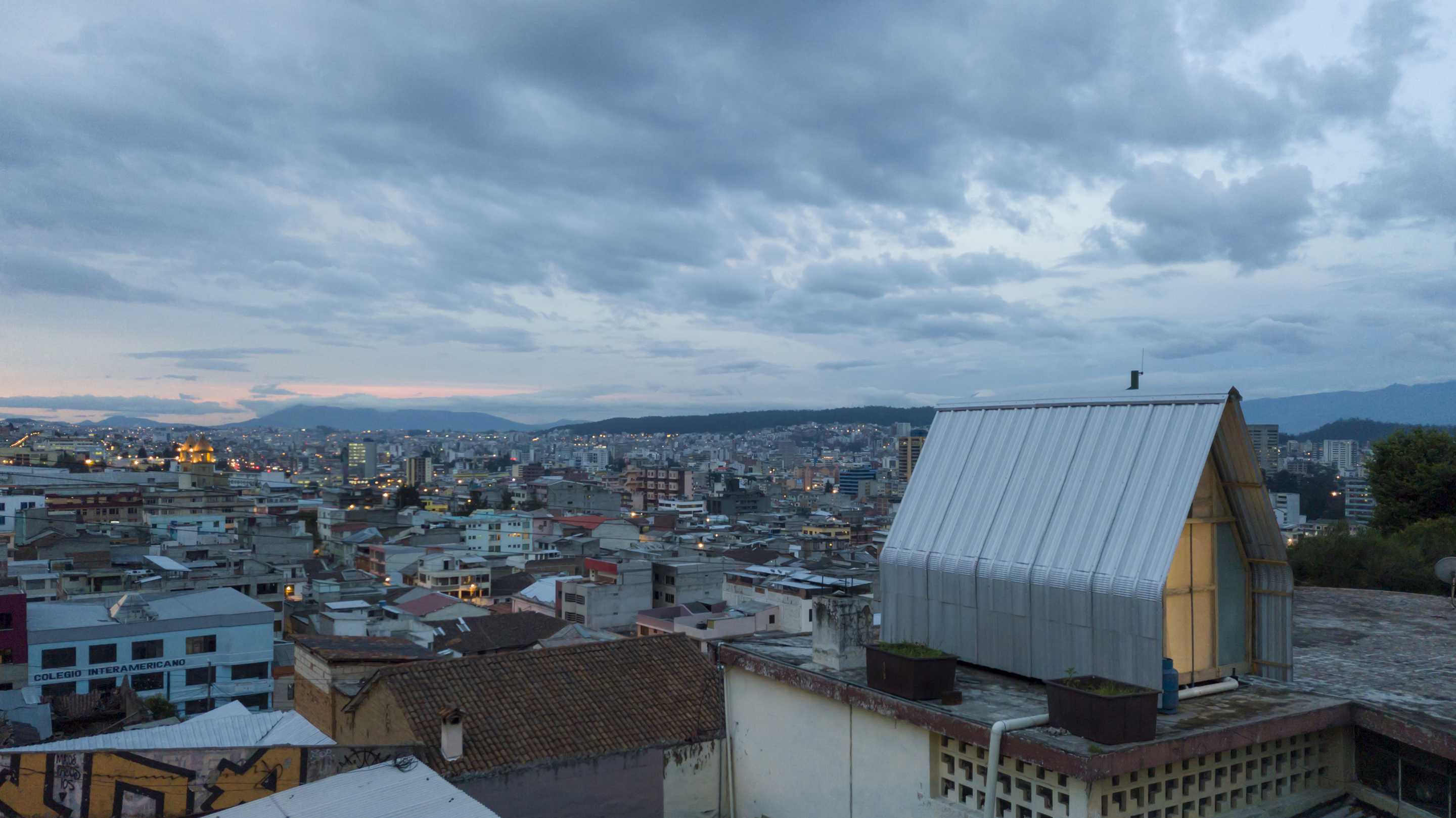
The relaxation of height restrictions for towers in Quito, the relocation of the city’s airport, and the upcoming inauguration of its metro system have heralded a new era of densification for the Ecuadorian capital. Trying to steal some of the equatorial shimmer is a new crop of scintillating skyscrapers by global names, and a school of resourceful locals thriving in their lofty shadows. Rainbow Blue Nelson, our roving Latin American travel writer, finds out how this rejuvenated cityscape is helping to reboot the country’s ambitions and offers up a tantalising design-led Quito tour.
Take our Quito tour: the best of the city
Iqon
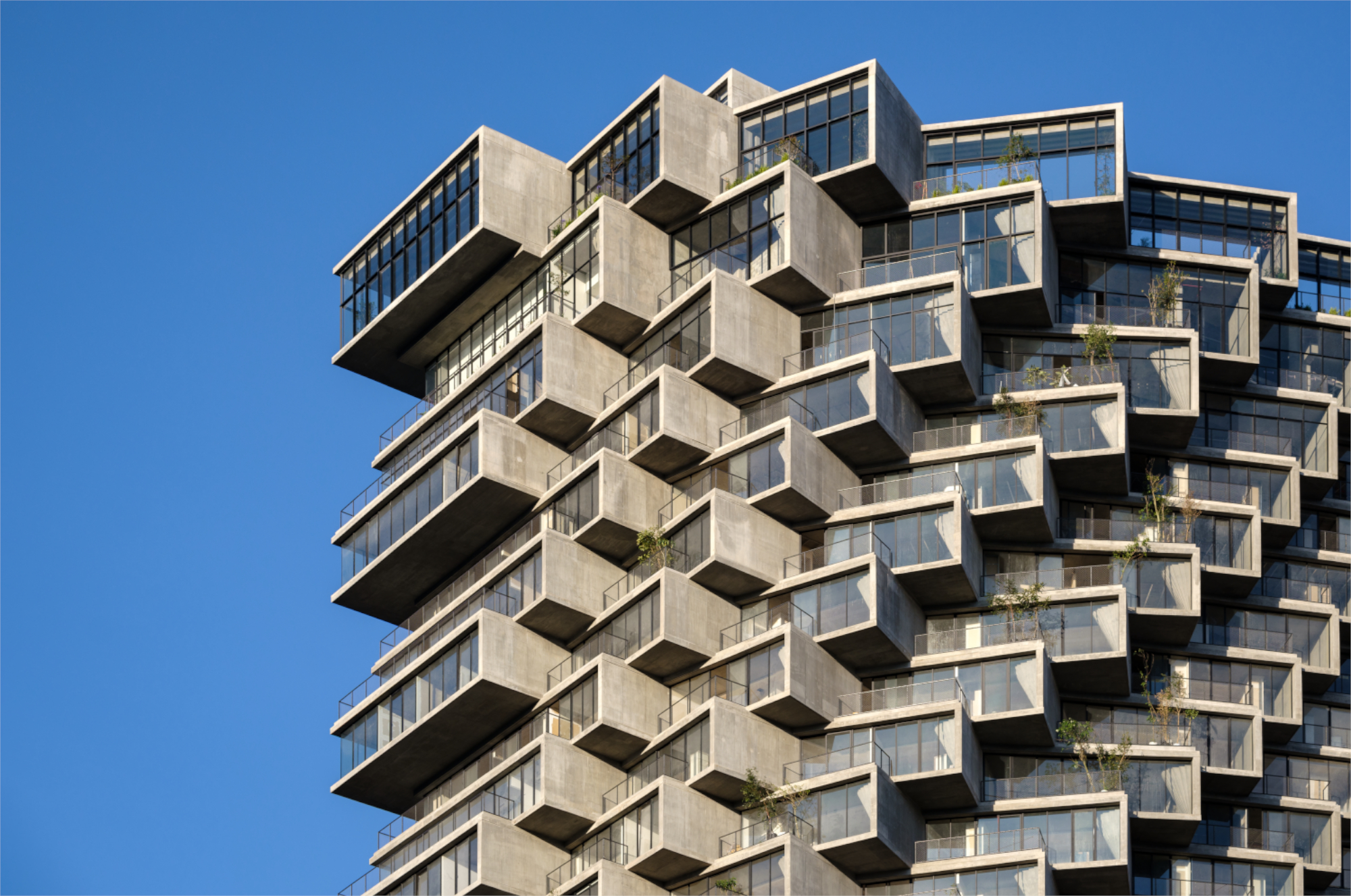
The façade of the Iqon building, by BIG
Part of local developer Uribe Schwarzkopf’s plan to reshape Quito’s skyline by enlisting the help of global architects, Iqon is the brutalist South American debut of Bjarke Ingels Group (BIG). Now officially Quito’s tallest building, Iqon comes with a prickly ‘pineapple skin’ that creates plenty of nooks for trees to be planted on the balconies. Uribe Schwarzkopf and BIG have another urban forest, Epiq, going up further south.
Metro de Quito
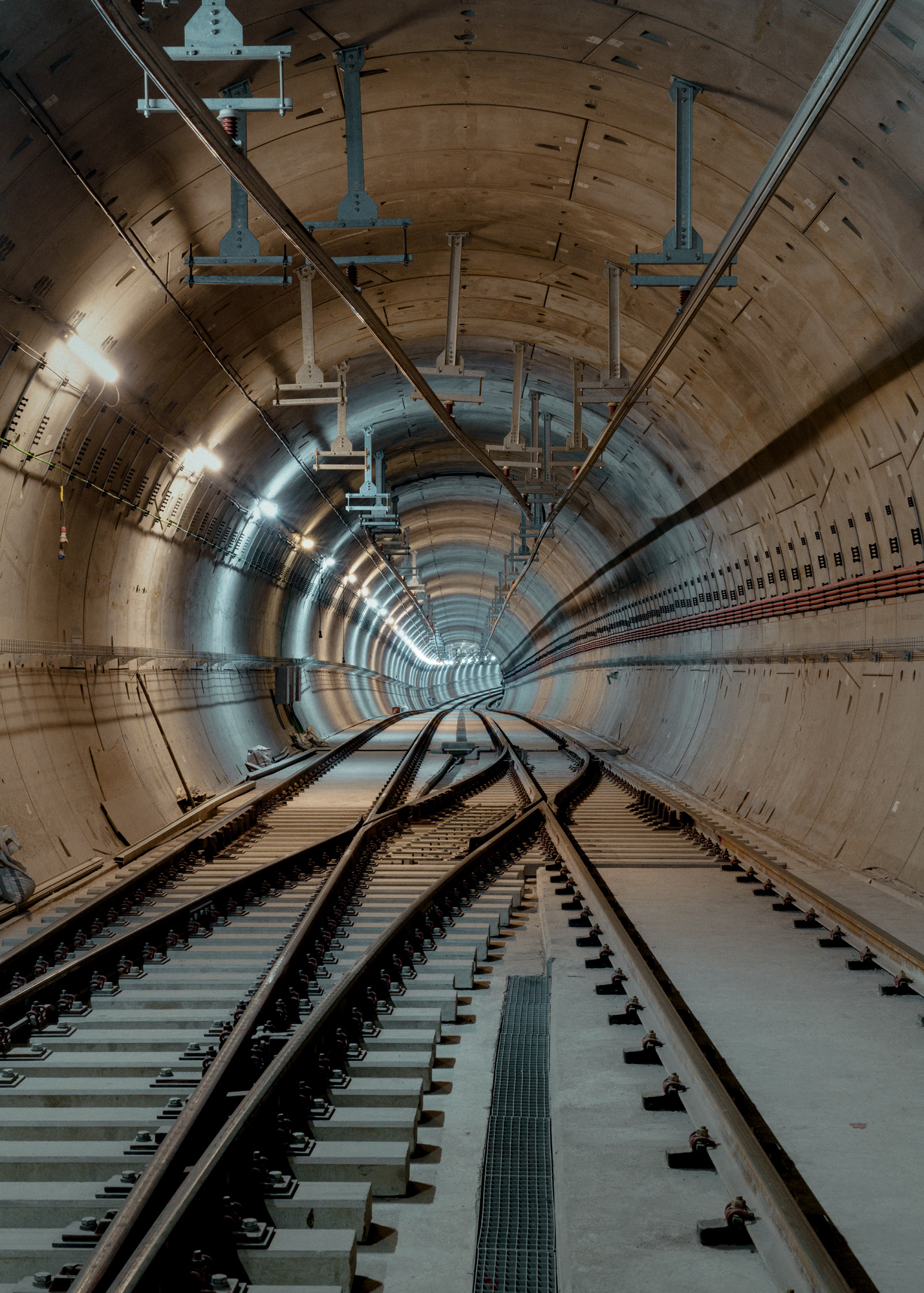
The metro in Quito, photographed for Wallpaper’s Trip to Quito, as part of the summer 2020 issue
The biggest urbanism project in Quito’s history finished construction ahead of schedule and on budget in 2019, but has been kept tantalisingly under wraps for four years as the city searched for an operator. Light is finally at the end of the 22.6km-long tunnel, with the new metro due to open in December 2022. Worth the wait? Definitely. With 15 stations and a sparkly branding, the network will reduce the city’s carbon footprint by 60,000 tons of CO2 each year.
Foresta
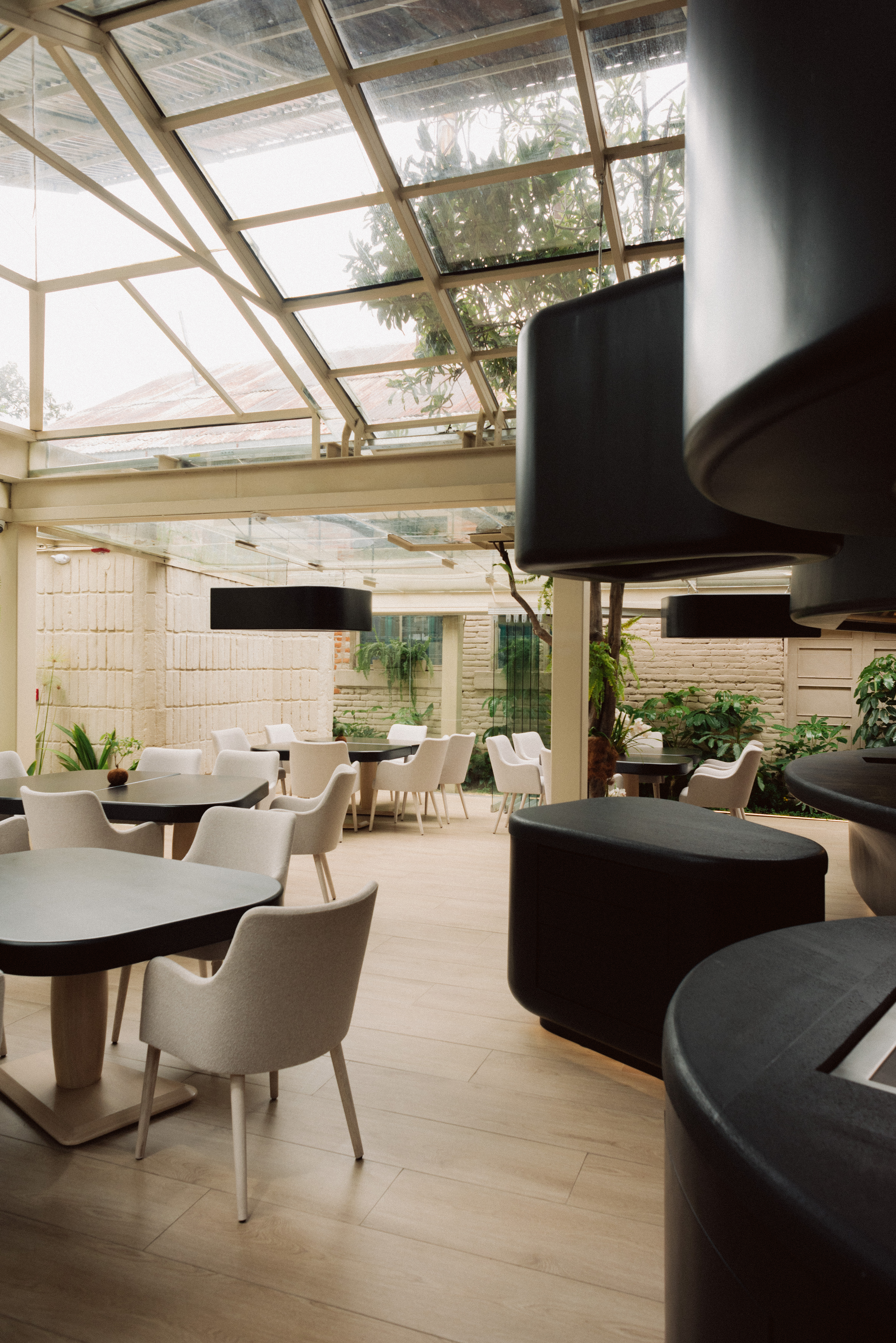
The restaurant space at Foresta, Quito
Much of the food on the menu in this sophisticated addition to Quito’s restaurant scene comes from chef Rodrigo Pacheco’s Bocavaldivia regenerative food forest in Manabí, in the south of the country. Pacheco and his team prepare tasty Amazonian grubs and grilled llama steaks in an indoor-outdoor space designed by Estudio Felipe Escudero (a practice that is part of the Wallpaper* Architects’ Directory 2022). Its striking glass roof puts Ecuador’s forest in the picture, pretty much every which way you look.
Wallpaper* Newsletter
Receive our daily digest of inspiration, escapism and design stories from around the world direct to your inbox.
Roveta
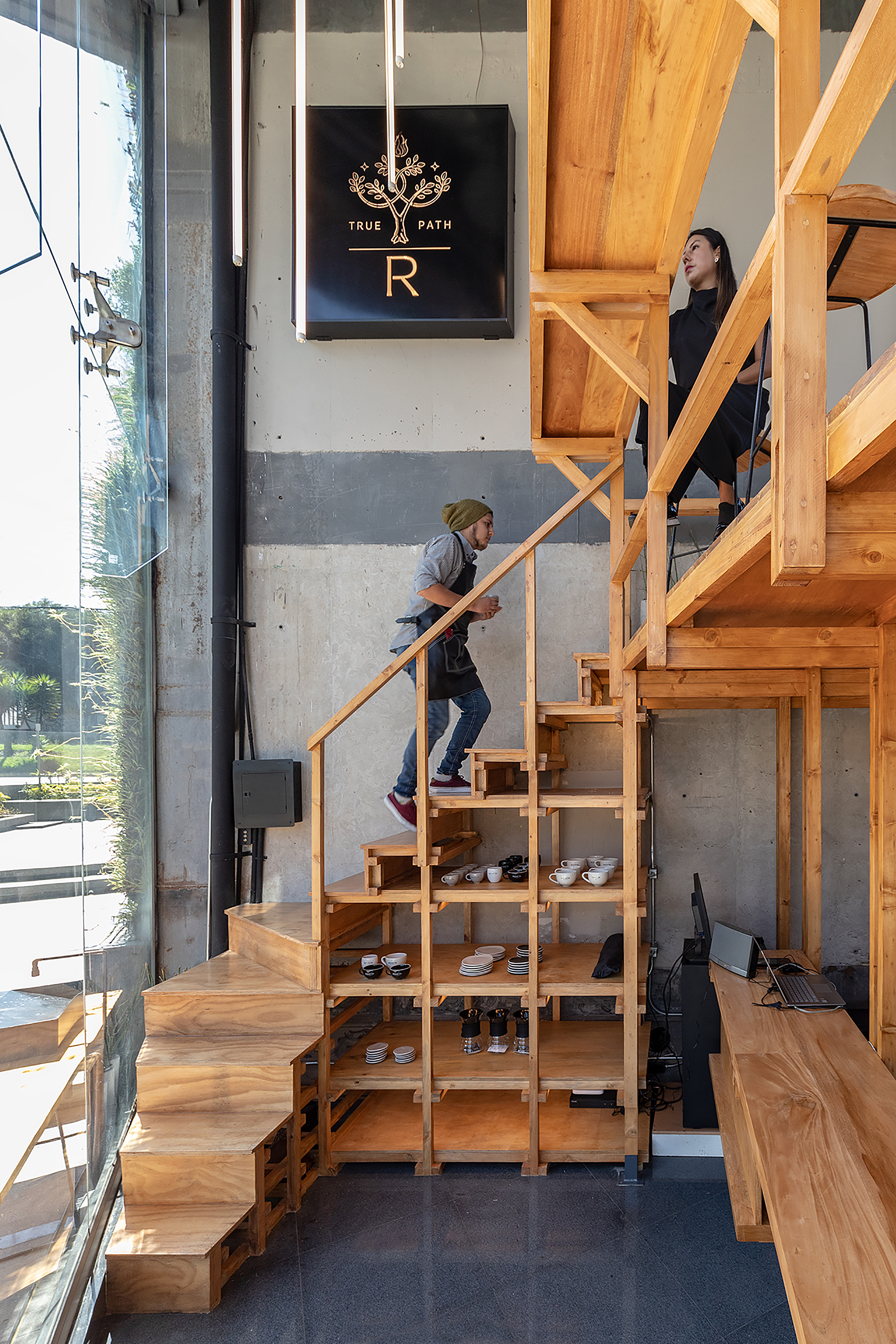
Coffee shop Roveta, Quito
Quito’s most accomplished architectural coffee joint, Roveta serves brilliant brews from Hacienda Santa Gertrudis in a lo-fi, 100 per cent recycled pine shelf structure, inserted intelligently by Rama Estudio into the glass triangle at the foot of the Alianza Tower. Midcentury masterpieces such as the Kohn Residence and Milton Barragán’s Atrium are within walking distance of this sustainable caffeine pitstop.
Casa Parasito
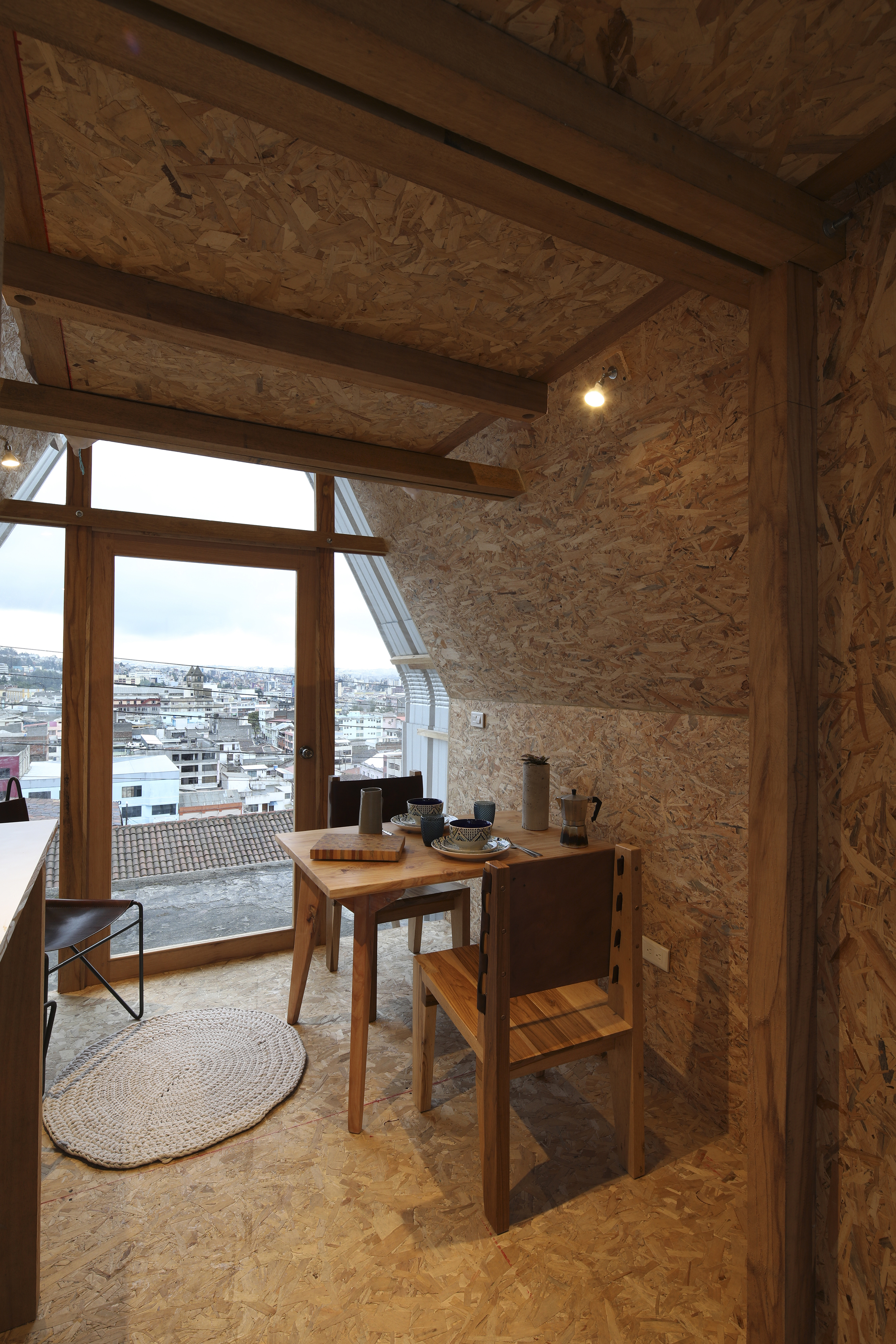
The inside of Casa Parasito, a Quito tiny home with a view
Built on a shoestring budget to occupy as little as possible of his grandmother’s roof terrace in the hip neighbourhood of San Juan, Nicolás Viteri’s simple ‘parasite’ structure is a clever counter to the dizzying densification taking place further north. It’s now on Airbnb after the El Sindicato Arquitectura founder failed to convince his girlfriend to make the 12 sq m house their home. It’s a tight squeeze for two, but the views are worth a thousand times the nightly rental.
Fundación Guayasamín
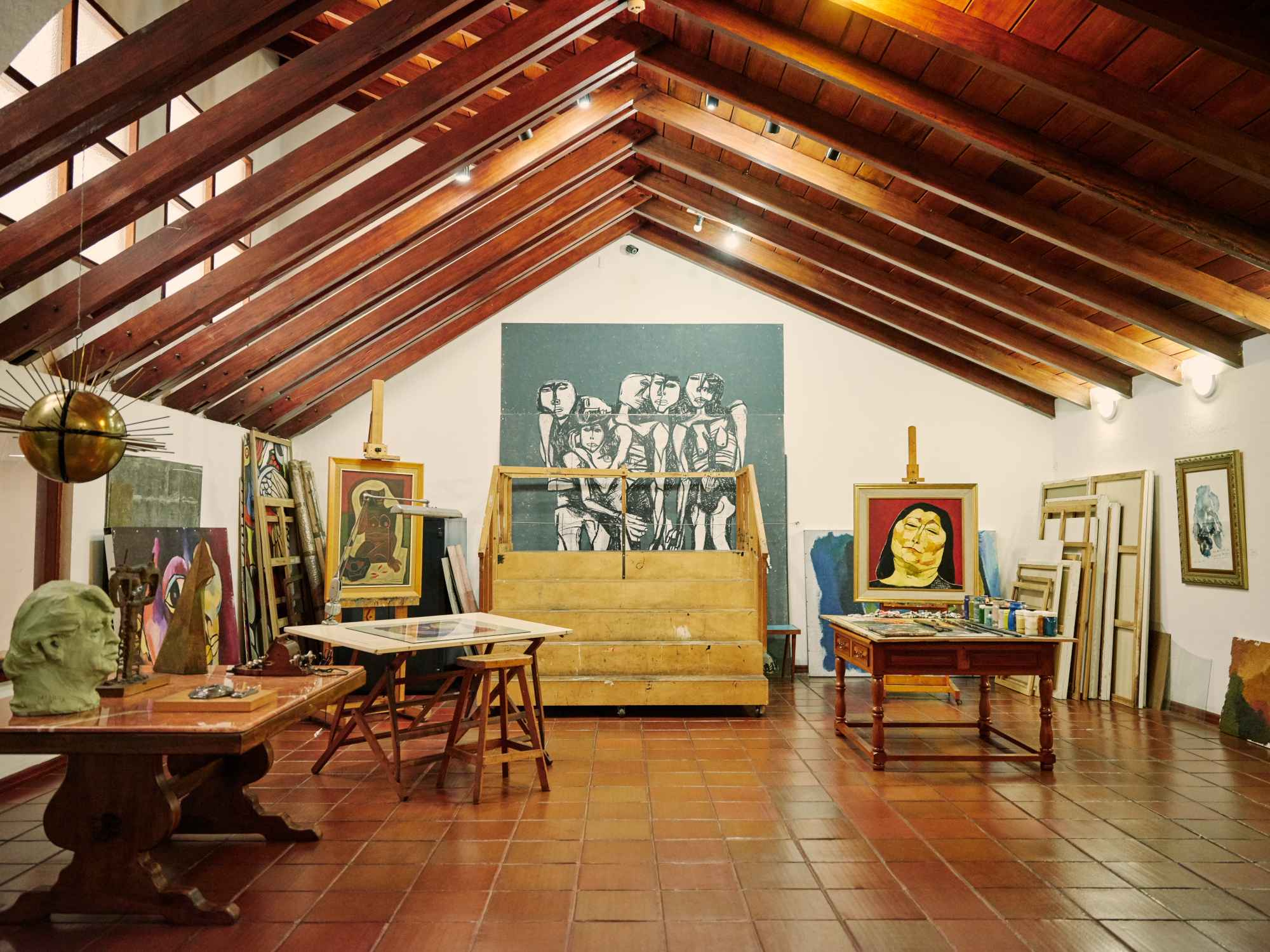
The studio space at Fundación Guayasamín, the home and studio of Oswaldo Guayasamín in Quito
A visit to Oswaldo Guayasamín’s home and studio in Bellavista is unquestionably the cultural highlight of any Quito visit. Guayasamín’s paintings and murals are displayed both in his studio and adjoining Capilla del Hombre, a monolithic chapel made of volcanic rocks. Designed by the artist himself, the museum was completed by his nephew, architect Handel Guaysamín, after the artist’s death in 1999.
Qorner
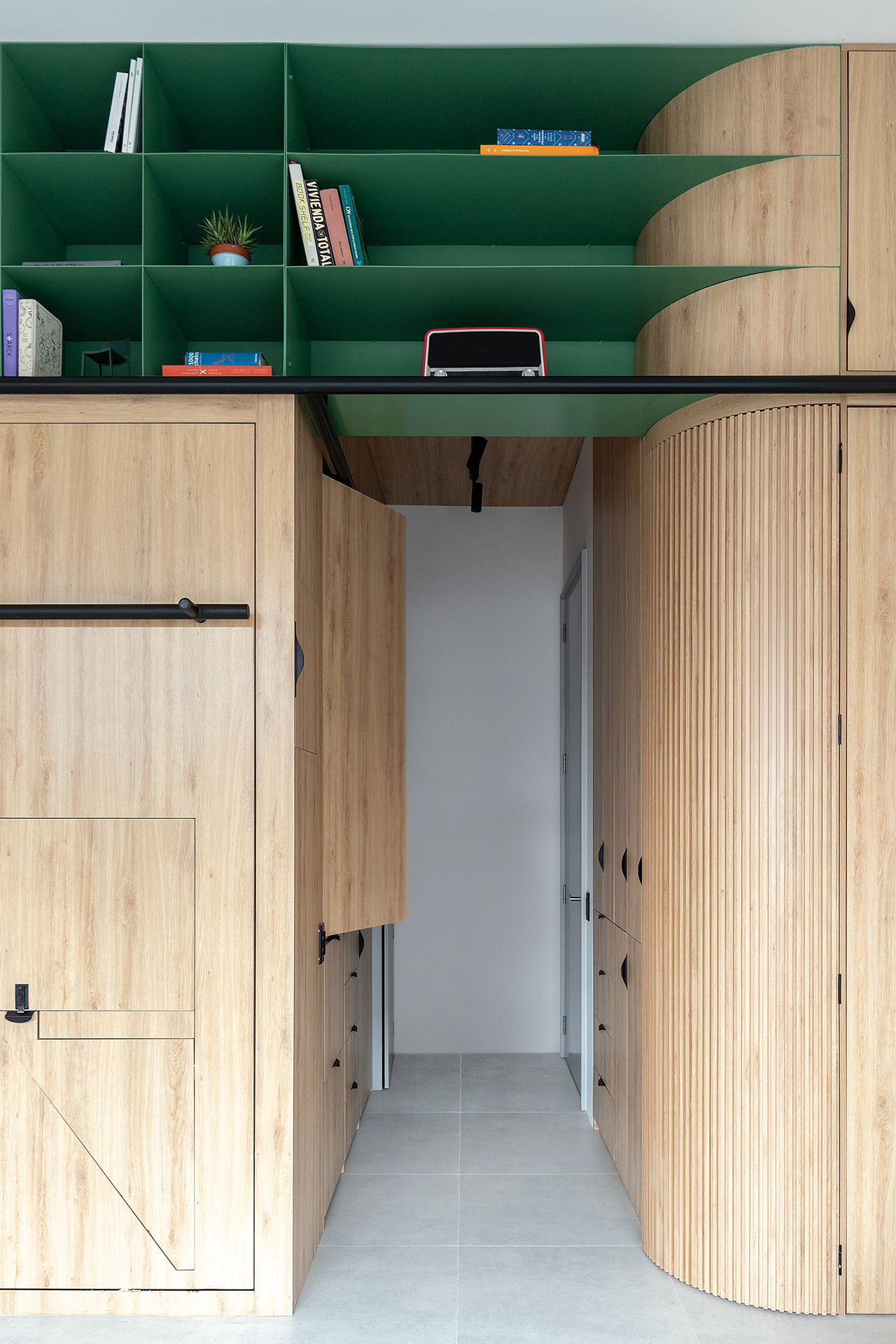
Within Quito’s Qorner tower, a 28 sq m, ultra-space-saving apartment
Moshe Safdie’s carefully crafted Qorner offers a similar contextual response to BIG’s geometric gem. To experience Safdie’s airy interiors, rent one of the micro-units on the north-eastern side of the building. Developer Uribe Schwarzkopf teamed up with architects Juan Alberto Andrade and María José Váscones to create a 28 sq m studio dubbed Doméstico; its space-saving foldaway beds and workstations have proved popular on Airbnb.
Somos
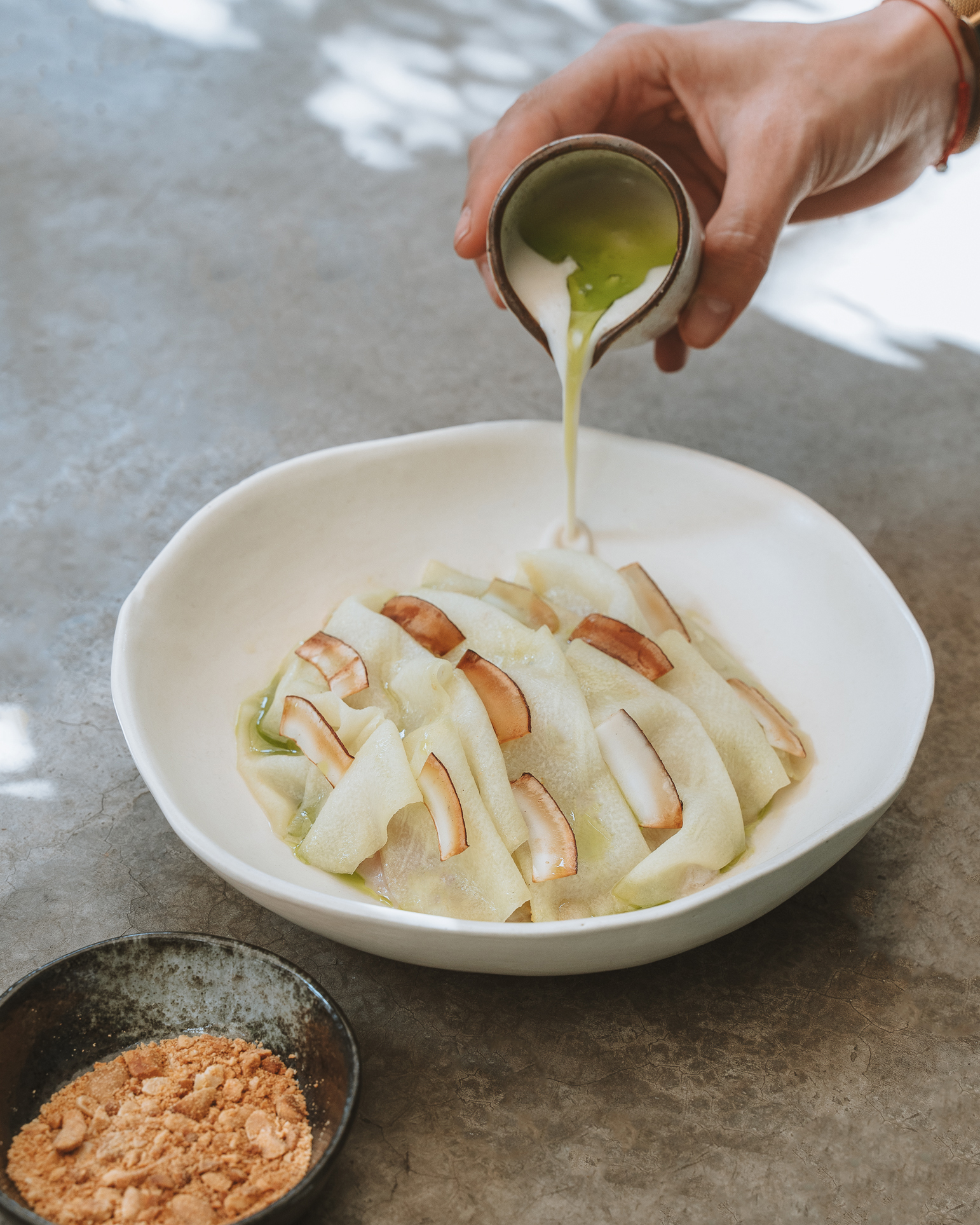
Female-led design studio Interni converted a dreary British-style pub into an earthy foodie hub for Quito’s friendliest chef, Alejandra Espinoza, in 2020. Somos’ superb tasting menu and the wraparound graffiti by Apitatan celebrate Ecuador’s principal bioregions, from the Andean highlands to the Pacific coast, paying particular homage to Indigenous wisdom. Its boutique is a treasure trove of organic chocolate, handwoven handicrafts and local liquors.
Originally hailing from the UK, Rainbow Blue Nelson first landed in Colombia in search of Tintinesque adventures in 1996. Subsequent forays from his Caribbean base in Cartagena have thrown up a book about Pablo Escobar, and the Wallpaper* City Guides for Santiago, Brasilia, Bogota and Miami. Currently completing a second book about Colombia whilst re-wilding 50 hectares of tropical rainforest on the country's Caribbean coast, he’s interviewed some of South America's most influential figures in art, design and architecture for Wallpaper* and other international publications.
-
 Put these emerging artists on your radar
Put these emerging artists on your radarThis crop of six new talents is poised to shake up the art world. Get to know them now
By Tianna Williams
-
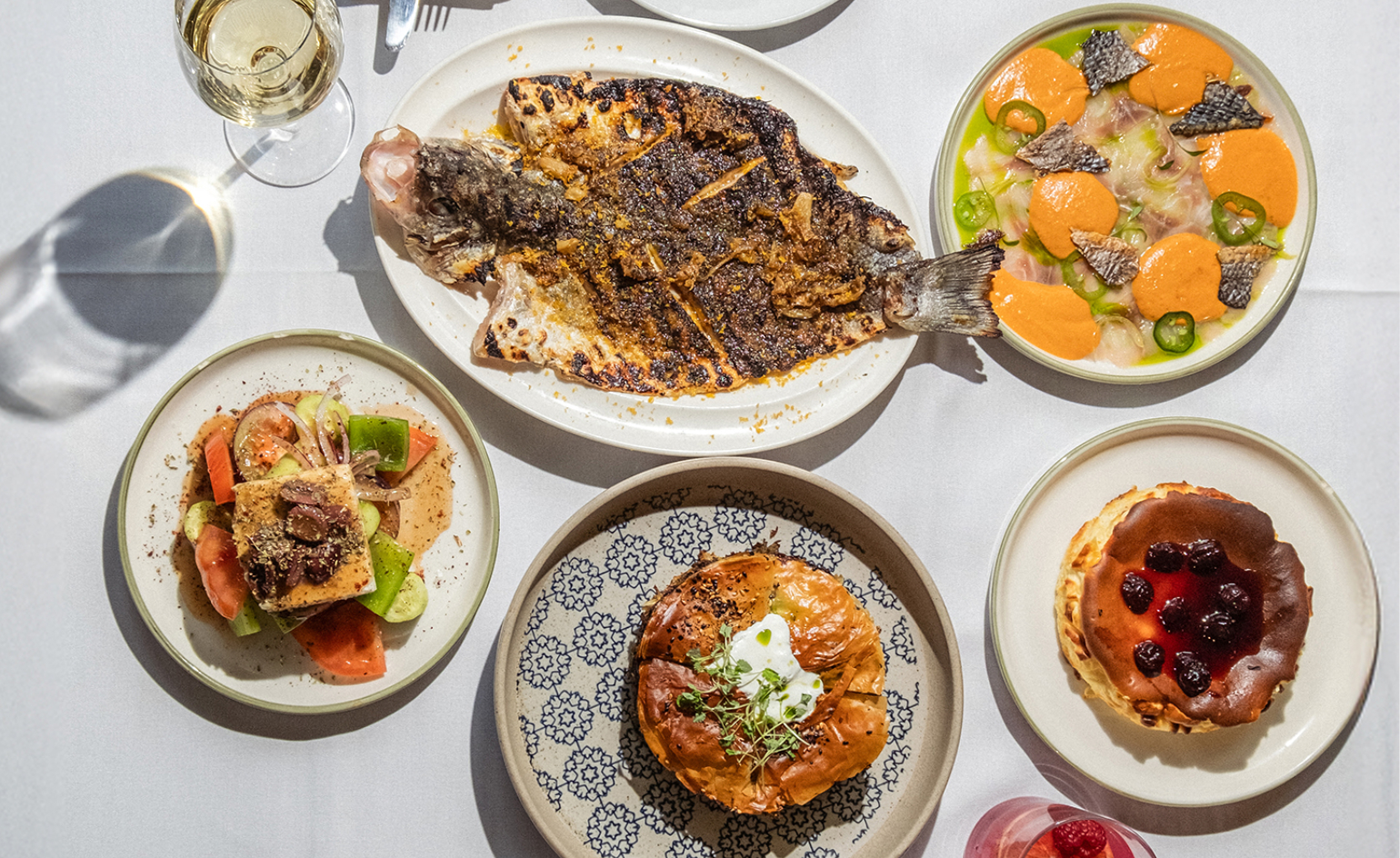 Dining at Pyrá feels like a Mediterranean kiss on both cheeks
Dining at Pyrá feels like a Mediterranean kiss on both cheeksDesigned by House of Dré, this Lonsdale Road addition dishes up an enticing fusion of Greek and Spanish cooking
By Sofia de la Cruz
-
 Creased, crumpled: S/S 2025 menswear is about clothes that have ‘lived a life’
Creased, crumpled: S/S 2025 menswear is about clothes that have ‘lived a life’The S/S 2025 menswear collections see designers embrace the creased and the crumpled, conjuring a mood of laidback languor that ran through the season – captured here by photographer Steve Harnacke and stylist Nicola Neri for Wallpaper*
By Jack Moss